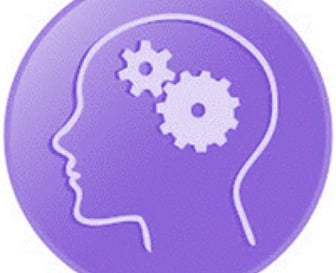Therapy Services Offered
Specialised support for trauma, anxiety, depression, and health-related emotional distress.
EMDR/Trauma therapy


Expert therapy for trauma, anxiety, and emotional distress.
EMDR (Eye movement Desensitisation and reprocessing) is a psychotherapy that enables people to heal from the symptoms and emotional distress that are the result of disturbing life experiences.
Repeated studies show that by using EMDR therapy people can experience the benefits of psychotherapy that once took years to make a difference. It is widely assumed that severe emotional pain requires a long time to heal. EMDR therapy shows that the mind can in fact heal from psychological trauma much as the body recovers from physical trauma. When you cut your hand, your body works to close the wound. If a foreign object or repeated injury irritates the wound, it festers and causes pain. Once the block is removed, healing resumes.
EMDR therapy demonstrates that a similar sequence of events occurs with mental processes. The brain’s information processing system naturally moves toward mental health. If the system is blocked or imbalanced by the impact of a disturbing event, the emotional wound festers and can cause intense suffering. Once the block is removed, healing resumes.
Using the detailed protocols and procedures learned in EMDR therapy training sessions, clinicians help clients activate their natural healing processes.




Cognitive behavioural therapy (CBT) including ACT and CFT
Counselling and Psychotherapy are two terms used to describe talking therapies. Counselling is the term used when a client contracts for a small number of sessions usually up to 10 sessions whereas Psychotherapy is the term used to describe the process of a much longer contract.
I will use the term counselling here for both therapies.
Counselling takes place when a counsellor (or psychotherapist) meets with someone (usually called a client) in a private and confidential setting to explore a difficulty in the client's personal or working life. Counselling is always at the request of the client. No one can properly be 'sent' for counselling.
Counselling can provide an opportunity to talk about your feelings in a secure and private place with someone who is trained to listen and reflect on what is being said. It can lead to greater self-knowledge and understanding, enabling the client to become aware of new choices and ways to resolve problems as well as improve relationships with others.
You may be encouraged to experiment with new ways of being, thinking and doing things at home in-between your counselling sessions.
The aim of counselling is to help the client make sense of what is happening in their lives and to assist and support them in working through their difficulties.
All sessions last for around 50 minutes from the appointment time and are held in the strictest confidence, except in the following instances:
Where you give me consent to break confidence i.e. to your GP.
Where I believe there is serious danger of you harming yourself or anyone else.
In cases of abuse to children where I am legally obliged to inform the statutory authorities.
When ordered to do so by a court of law, or when questioned by a police officer as part of a criminal investigation
Counselling & Psychotherapy
Cognitive Behavioural Therapy (CBT) is a type of talking therapy. It helps you understand that your thoughts, feelings, actions, and body sensations are all connected. By changing one, you can change the others.
When we feel sad or worried, we sometimes think and act in ways that make us feel worse. CBT helps us notice and change these unhelpful thoughts and actions so we can feel better.
CBT is a team effort. You and your therapist work together to set goals and find solutions.
Acceptance and Commitment Therapy (ACT, said as one word rather than A-C-T) is an empirically-based contextual CBT that combines acceptance and mindfulness-based strategies to reduce the influence of fear and avoidance of difficult psychological experiences (e.g., thoughts, feelings, images, memories). Alongside this, ACT helps clients identify deeply held personal values and to use these to guide meaningful behaviour change. From an ACT perspective, what is ‘true’ is what works for the client to help them move towards those valued directions. The so-called ‘truth criterion’ of functional contextualism - the name given to the philosophical underpinning of ACT - is pragmatism. What is true is what works!
Together, these therapeutic processes aim to increase psychological flexibility, which means contacting the present moment fully as a conscious human being, based on what the situation affords, and changing or persisting in behaviour in the service of chosen values.
Compassion-focused therapy (CFT) aims to help promote mental and emotional healing by encouraging people in treatment to be compassionate toward themselves and other people. Compassion, both toward the self and toward others, is an emotional response believed by many to be an essential aspect of well-being. Its development may often have the benefit of improved mental and emotional health.
Compassionate Therapy
As a psychotherapist, I specialise in treating people facing trauma, anxiety, and depression, I also have expertise in focusing on health psychology for those dealing with chronic pain and serious health issues.


"Words cannot express enough thanks for all you have done to bring light back into my world".
Mr Charlie H
"Life-changing therapy that truly helps"
Ms Lauren K.
Healing
Finding clarity through talking therapy.
Support
Wellness
rachel@stewartpsychotherapy.co.uk
© 2024. All rights reserved.
